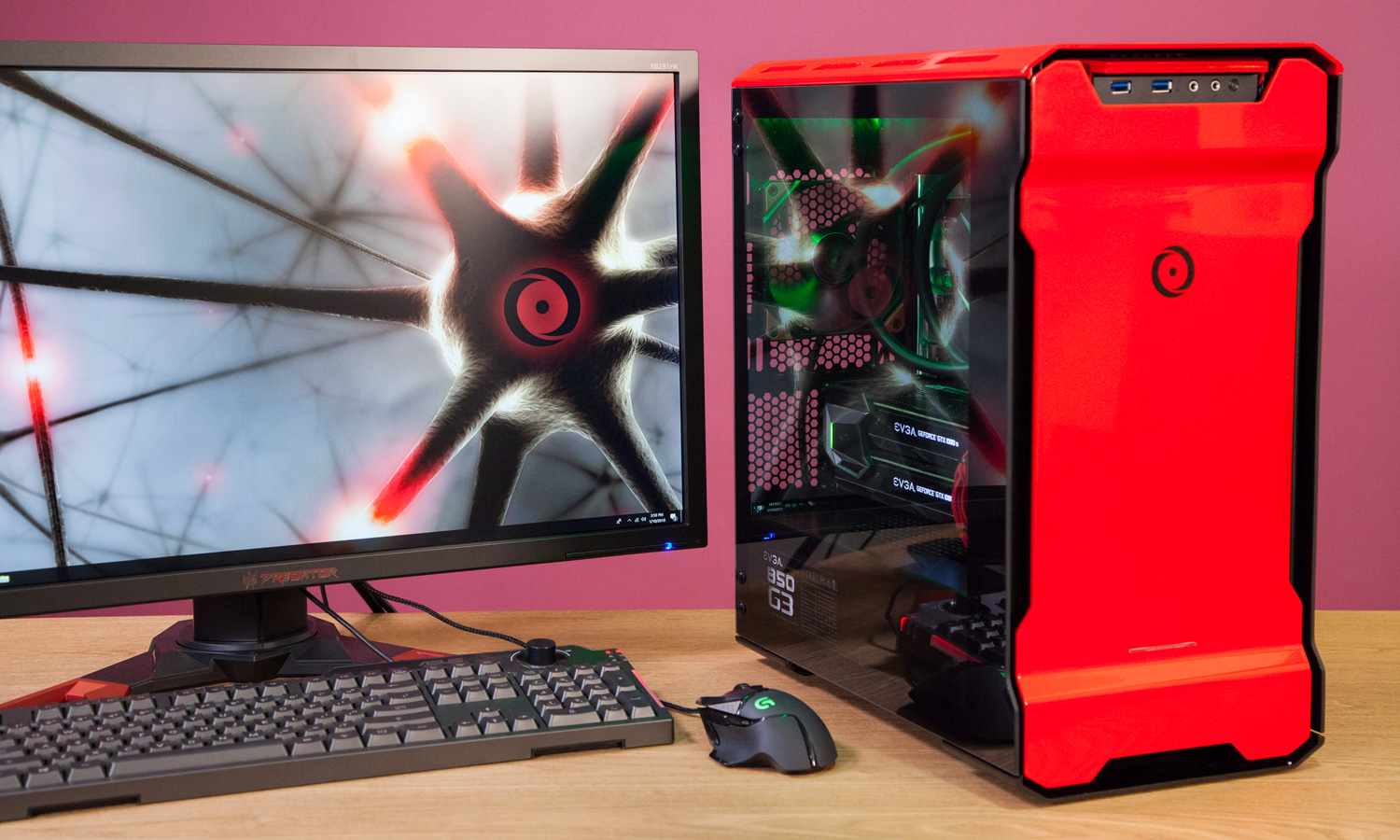Tom's Guide Verdict
The Origin Neuron is a stylish and highly customizable PC that you can configure into the gaming beast of your dreams.
Pros
- +
Gorgeous design
- +
Easy to upgrade
- +
Strong overall performance
- +
Lots of customization options
Cons
- -
Can get expensive
Why you can trust Tom's Guide
The Origin Neuron is an excellent middle ground for folks who are interested in Origin's range of boutique gaming PCs. It's not as tiny as the Chronos, nor is it as big and beasty as the Millennium, but it's every bit as customizable — and it might just be the best-looking of the bunch.
You can adorn the Neuron's captivating design with all types of sleek paint jobs and lighting options, and it's as easy to upgrade as it is fun to gawk at. If you're willing to shell out for a premium PC that you can trick out to your heart's content, the Neuron is one of the best midsize options you can buy.
Design
The Origin Neuron that showed up in our labs is so high-end, I could feel my wallet burning just looking at it. Our review unit is the PC equivalent of a tricked-out sports car, with cherry-red automotive paint along the front and top, and glass side panels that allowed me to drool over the wild RGB light show happening inside.
Our Neuron came equipped with a full row of RGB lights on its inner roof, as well as an included remote that allowed me to easily switch between solid colors, or have the PC cycle through an entire dazzling rainbow. You don't have to splurge on all of these fancy design flourishes when customizing your Neuron (more on that later), but they sure look nice.
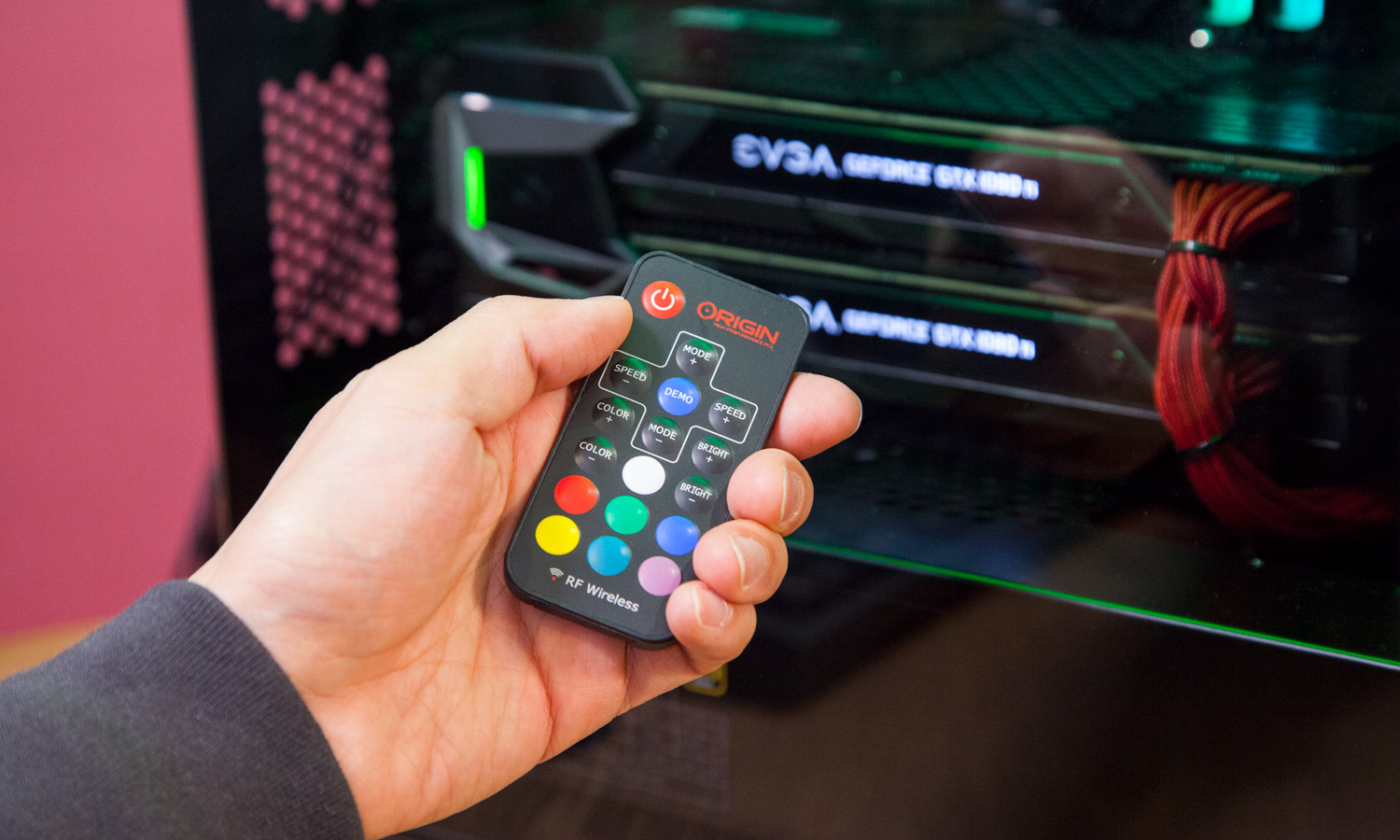
At 17.8 x 15.7 x 9 inches, the Neuron is relatively compact for a midsize tower. It's smaller than the Maingear R1 (20.2 x 18.9 x 8.7 inches) and roughly on a par with the 18.6 x 14.2 x 8.35-inch Alienware Aurora. However, Origin's metal-framed PC is fairly heavy, at 32 pounds, so you'll have to carry it around with care.
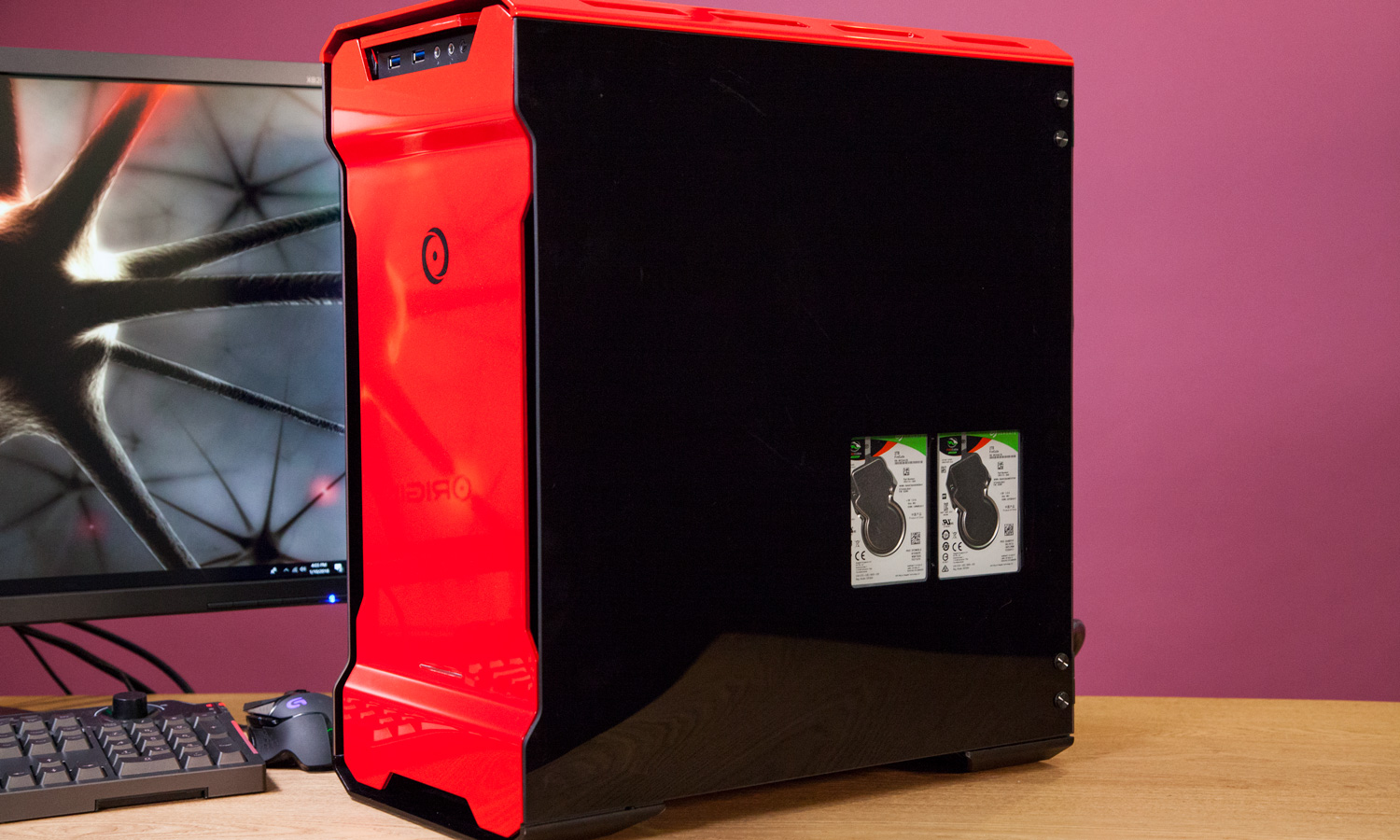
Key Specs
| Row 0 - Cell 0 | Starting Configuration | Our Configuration |
| Price | $1,153 | $4,308 |
| CPU | Intel Core i3-8100 | Intel Core i7-8700K |
| RAM | 8GB | 16GB |
| Storage | 250GB SSD | 500GB SSD, 2TB hard drive (x2) |
| GPU | Nvidia GTX 1050 Ti | Nvidia GTX 1080 Ti (x2) |
| Extras | None | Metallic paint, RGB interior lighting |
Ports and Upgradability
The Neuron has a standard array of plug-and-play ports up front, including two USB 3.0 ports, a headphone-and-mic jack, and a flap that lets you cover them all up. I would have liked to see some modern commodities, such as a front facing HDMI port for VR and a USB-C port, but their absence isn't a deal breaker.
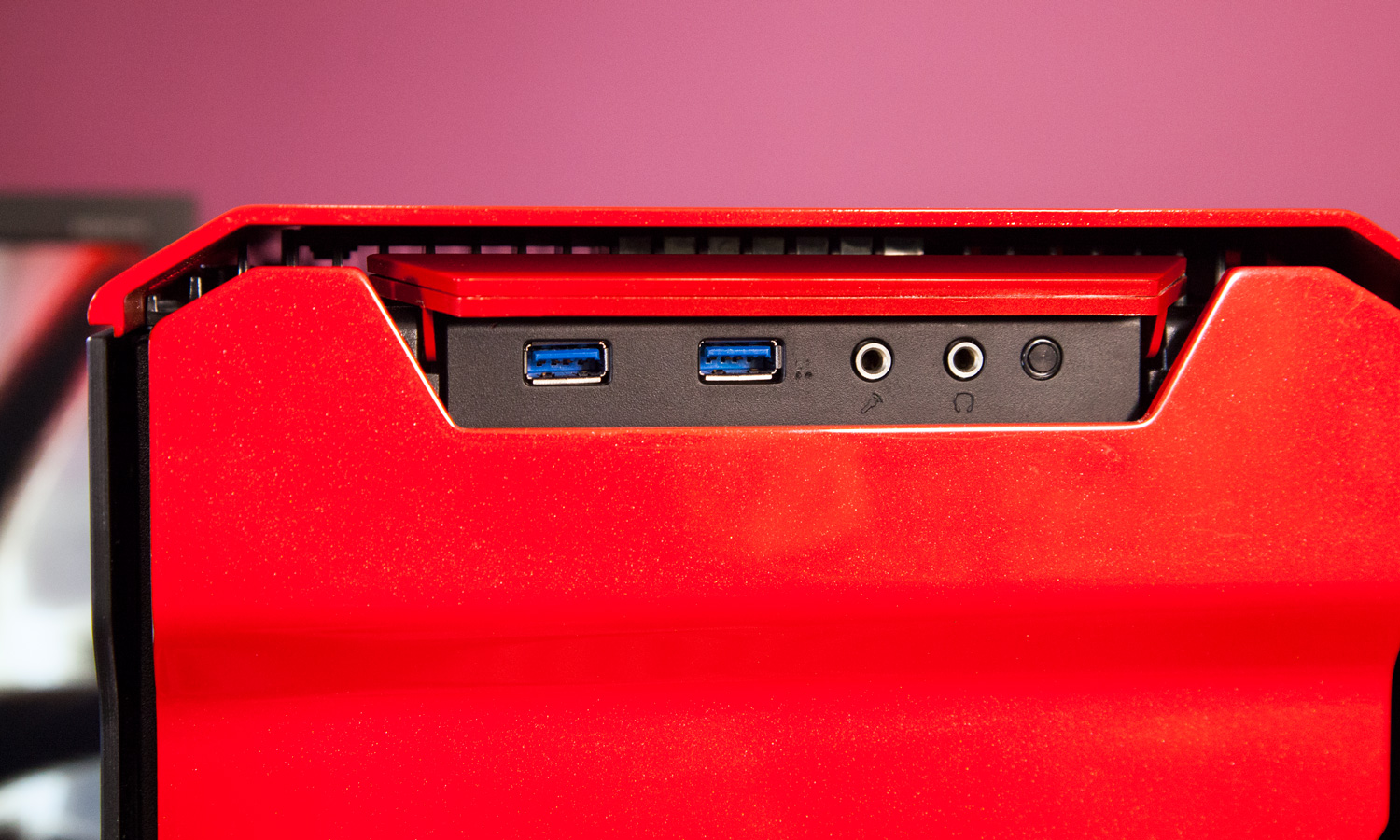
In the back, you'll find six additional USB 3.0 ports, two USB 2.0 ports, an Ethernet jack, a PS/2 port for older accessories and a full suite of audio jacks. The system's dual Nvidia GTX 1080 Ti graphics cards give you plenty of connectivity options for monitors; each sports an HDMI port and three DisplayPorts.
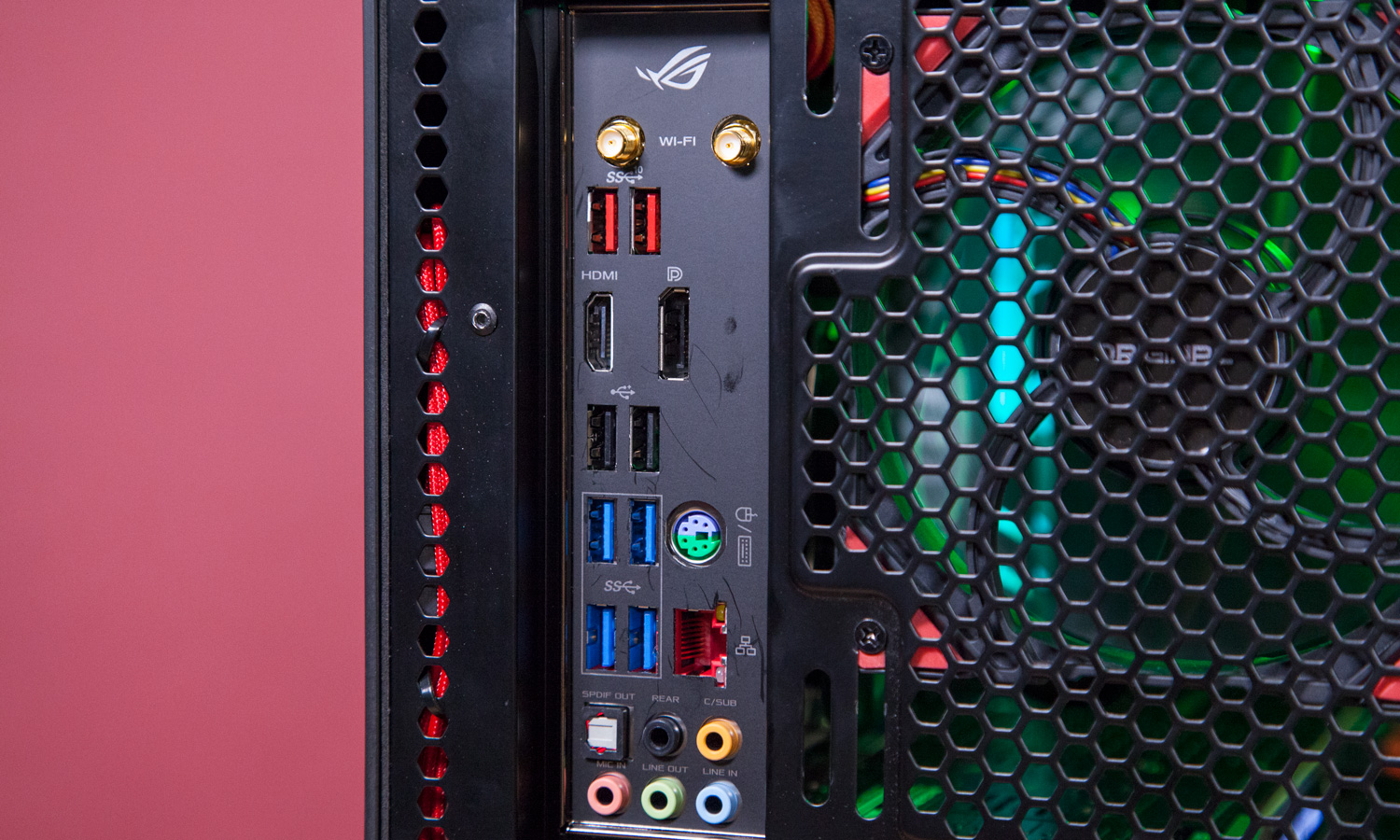
Getting inside the Neuron is a blissfully tool-free experience; the tempered glass panels on each side open up as easily as a refrigerator door. This allows you to access the storage drives on the right side, and dig into the motherboard, RAM slots and graphics cards on the left. You will need some technical know-how to actually swap out some of the parts, but I appreciate how easy it is to get inside.
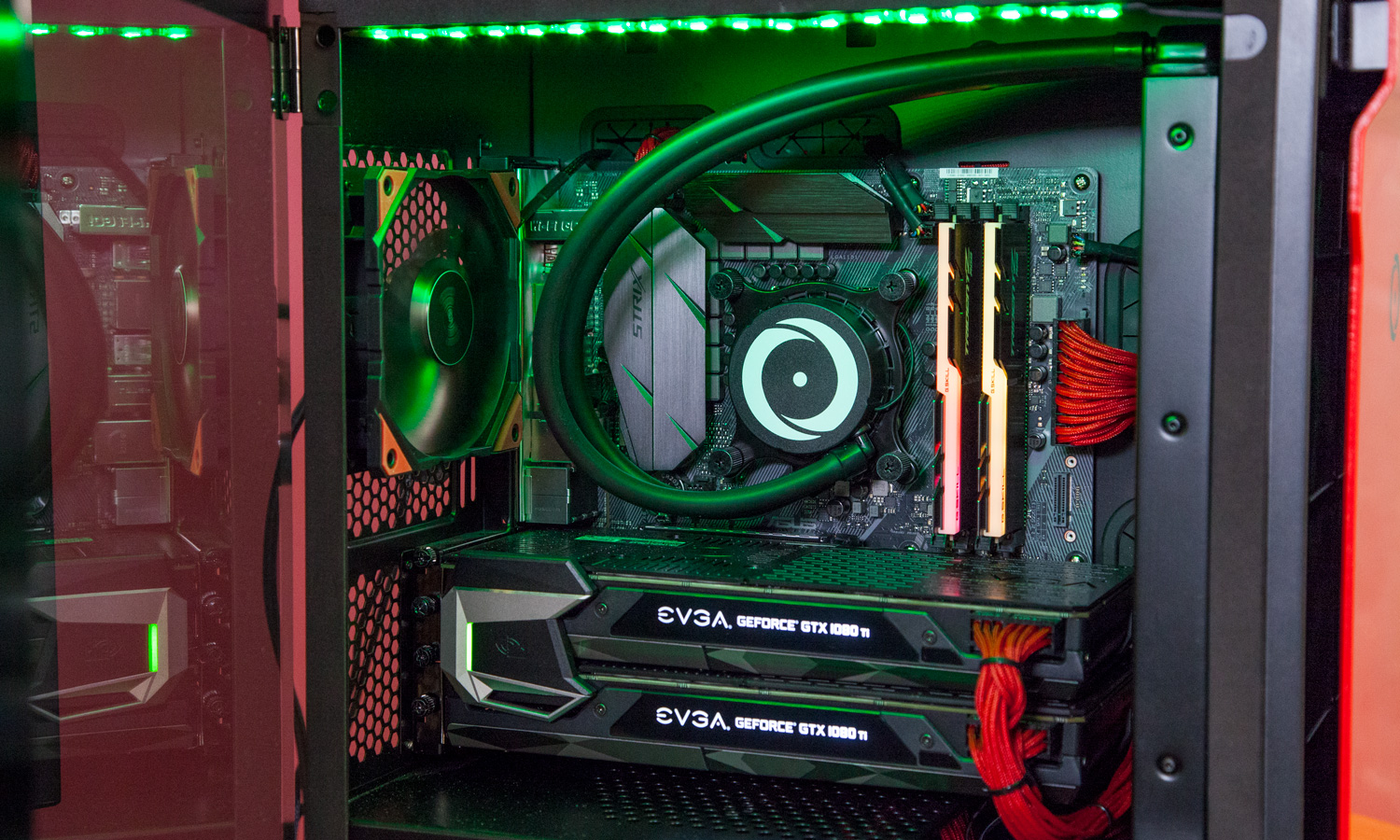
Gaming Performance
Featuring two Nvidia GTX 1080 Ti graphics cards, our Neuron packed more than enough muscle for high-quality 4K and VR gaming. Origin's PC allowed me to run Injustice 2 in 4K at a steady 60 frames per second, making it easy to marvel at each hero's detailed costumes without sacrificing in-game smoothness.
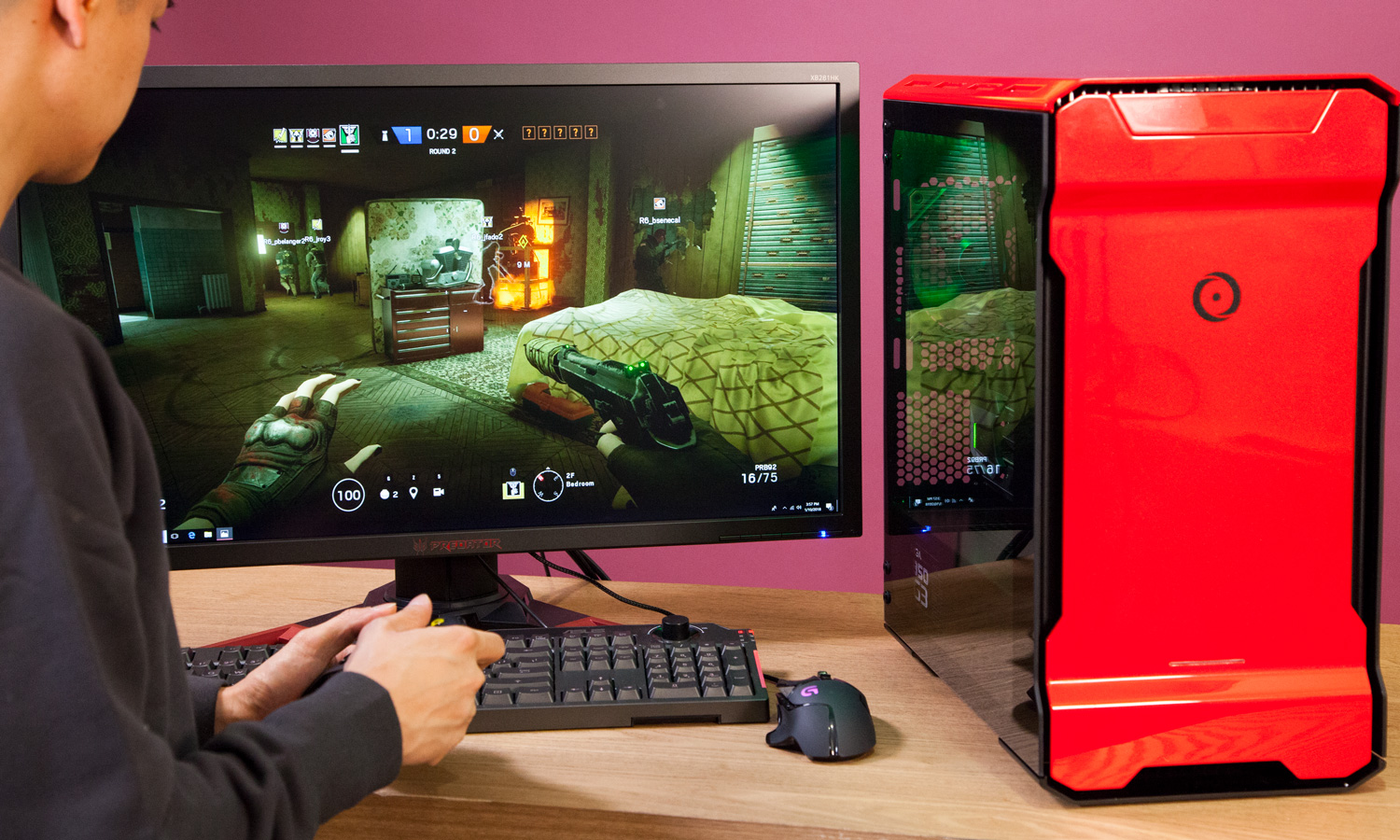
The Neuron ran our Rise of the Tomb Raider benchmark (1080p, max settings) at an impressively fluid 97 fps, which is a notch above the frame rate from our Alienware Area-51 Threadripper (96 fps, GTX 1080 Ti) and far better than our 72-fps average. At 4K, the Neuron turned in a highly playable 47 fps, once again topping the Area-51 (45 fps) by a hair.
Origin's desktop made quick work of our Grand Theft Auto V benchmark (1080p, max settings), rendering the game's rich open world at a silky 142 fps and topping the Area-51's 111 fps. The Neuron maintained a solid 56 fps at 4K, surpassing our 42-fps average by a decent margin.
MORE: The Best Gaming Desktops Available Now
The Neuron scored a blazing 11,867 on the 3DMark Fire Strike Ultra test for 4K gaming, nearly doubling our 6,133 gaming-PC average.
Unsurprisingly, the PC maxed out the SteamVR Performance Test with its score of 11, making it more than ready for your Oculus Rift or HTC Vive. That puts it on a par with the Area-51 Threadripper and above our 10.7 gaming-PC average.
Overall Performance
Thanks to its Intel Core i7-8700K processor and 16GB of RAM, the Neuron had no issues juggling a smorgasbord of tasks once I needed to do more than game. The system never showed a drop of slowdown, even as I played Injustice 2 in one window, bounced between six Twitch streams on another and opened up a dozen browser tabs on a third.
The Neuron racked up a strong score of 23,435 on the Geekbench 4 performance test, falling to the Area-51's Ryzen Threadripper 1950X CPU (26,238) but topping our 19,124 gaming-desktop average.
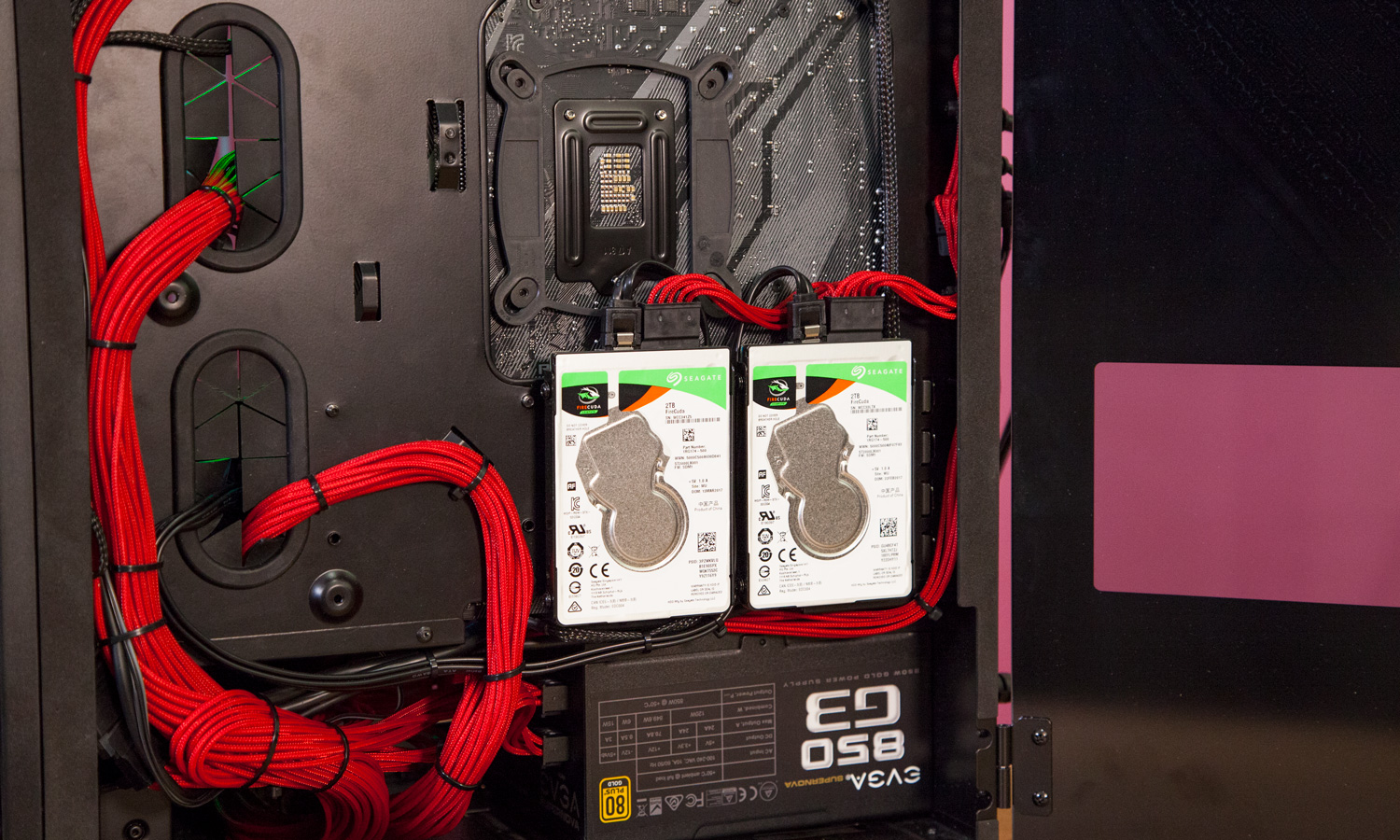
On our spreadsheet test, Origin's PC matched 20,000 names to addresses in just 2 minutes and 31 seconds. That's speedier than both the Area-51 (3:16) and our 3:06 average.
Our Neuron's 500GB solid-state drive copied about 5GB of files in a zippy 10 seconds, for a transfer rate of 508.92 MBps. That puts it slightly behind the Area-51's 1TB SSD (565.5 MBps) but ahead of our 450.85 average.
Configurations
As with all Origin PCs, the Neuron is made-to-order and supports a ton of high-end components and add-ons. You start by choosing a case — either a compact Fractal Design Define Mini C case or the slightly larger Phantek Evolv, which our unit came in.
The system starts with an ASRock Z370M motherboard, an Intel Core i3-8100 processor, 8GB of RAM, a 250GB SSD and an Nvidia GTX 1050 Ti GPU, all of which will run you $1,060 with the Fractal case and $1,153 with the Phantek case.
From there, you can add a ton of bells and whistles, including metallic paint in a variety of colors ($250) as well as interior lighting ($30). The Neuron supports a bevy of high-end components, including up to an Intel Core i7-8700K ($280), dual Nvidia Titan XP graphics cards ($2,572), 64GB of RAM ($820) and as many as three storage drives of your choosing. Your personal Neuron is limited only by your imagination — and your wallet.
MORE: Our Favorite Gaming Keyboards
Our $4,308 review unit is a good example of what you can do with the Neuron on a big budget. It packs an Intel Core i7-8700K processor, 16GB of RAM, two Nvidia GTX 1080 Ti graphics cards, a 500GB SSD and two 2TB hard drives. Our unit also shows off red metallic paint and internal RGB lighting.
The Neuron comes with a one-year part-replacement warranty and a 45-day shipping warranty, as well as lifetime phone support and labor.
Bottom Line
The Origin Neuron is an excellent high-end gaming PC, offering a slick, customizable design that grabs your attention without coming off as excessive or impractical. With support for the latest Intel processors, up to two high-end Nvidia GPUs and tons of storage and paint options, you'll have no trouble configuring it into the beast of your dreams — both inside and out.
If you're looking for something with similar power that's slightly less extravagant and even easier to upgrade, the Alienware Aurora is a solid alternative. Origin's Chronos PC is a better choice for living-room gamers, while the company's Millennium and Genesis are ideal for those who want a massive tower stuffed with the most powerful parts out there. But if you're seeking a made-to-order PC that hits a sweet spot between price, size, power and flexibility, the Neuron is one of the best PCs you can buy.
Credit: Shaun Lucas/Tom's Guide
Mike Andronico is Senior Writer at CNNUnderscored. He was formerly Managing Editor at Tom's Guide, where he wrote extensively on gaming, as well as running the show on the news front. When not at work, you can usually catch him playing Street Fighter, devouring Twitch streams and trying to convince people that Hawkeye is the best Avenger.
